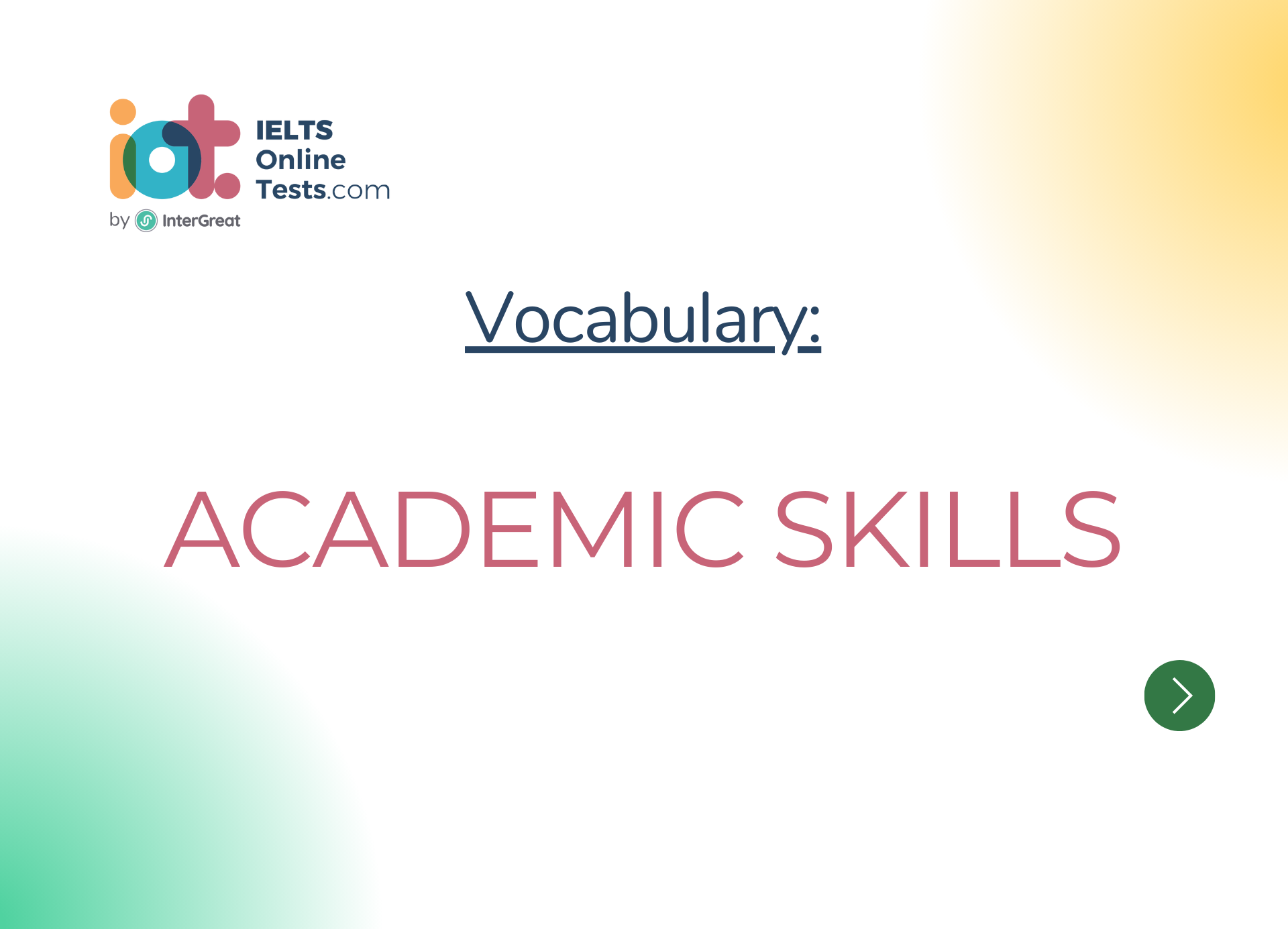
Academic skills
Here are some vocabulary words related to academic skills for the IELTS band score range of 4.5-6.0:
1. Research Skills
Conduct: To carry out or perform (e.g., conduct research).
Sources: Materials used for gathering information (e.g., books, articles, websites).
Citations: References to the sources used in academic writing.
2. Note-taking
Summarize: To briefly capture the main points of a text or lecture.
Keywords: Important words or phrases that convey the main ideas.
Outline: A structured plan that organizes information hierarchically.
3. Time Management
Prioritize: To rank tasks in order of importance.
Procrastination: Deliberately delaying tasks or assignments.
Deadline: The final date by which a task must be completed.
4. Critical Thinking
Analyze: To examine in detail and draw conclusions.
Evaluate: To assess the value or importance of something.
Logical: Following a clear and rational sequence of thought.
5. Problem-solving
Identify: To recognize and define a problem or challenge.
Solutions: Strategies or actions to address the problem.
Implement: To put a plan or solution into action.
6. Communication Skills
Articulate: Expressing thoughts or ideas clearly and coherently.
Engage: To actively participate or involve others in discussions.
Presentation: Delivering information or ideas to an audience.
7. Academic Writing
Thesis statement: The main argument or central point of an essay.
Paragraph structure: The organization of sentences in a paragraph.
Coherence: The clarity and logical connection between ideas.
8. Language Proficiency
Fluency: The ability to speak or write with ease and flow.
Vocabulary: A range of words and expressions in a language.
Grammar: The rules and structure of a language.
9. Collaborative Skills
Teamwork: Working together effectively in a group.
Cooperation: Joint efforts to achieve a common goal.
Feedback: Constructive comments to improve performance.
10. Presentation Skills
Visual aids: Charts, graphs, or slides used to support a presentation.
Eye contact: Maintaining visual connection with the audience.
Engaging: Captivating the audience's interest and attention.
11. Study Techniques
Memorization: Learning and retaining information from memory.
Flashcards: Small cards with information used for review and study.
Mnemonics: Memory aids or techniques to help recall information.
12. Academic Integrity
Plagiarism: Using someone else's work or ideas without giving proper credit.
Cite: To provide references to sources used in academic work.
Originality: Creating new and unique work without copying others.
13. Time Management
Efficiency: Achieving maximum productivity with minimum wasted effort.
Schedule: A plan that outlines activities and their allocated time.
Breaks: Short periods of rest between study or work sessions.
14. Reading Strategies
Skimming: Quickly scanning text to get a general idea of the content.
Scanning: Rapidly searching for specific information in a text.
Inference: Drawing conclusions based on implicit information.
15. Listening Skills
Concentration: Focused attention on the speaker or audio material.
Note-taking: Writing down key points while listening to a lecture.
Clarification: Seeking further explanations for better understanding.
Remember, developing strong academic skills will not only benefit you in the IELTS exam but also throughout your academic and professional journey. Practice these skills regularly to improve your performance and confidence. Good luck with your studies!




